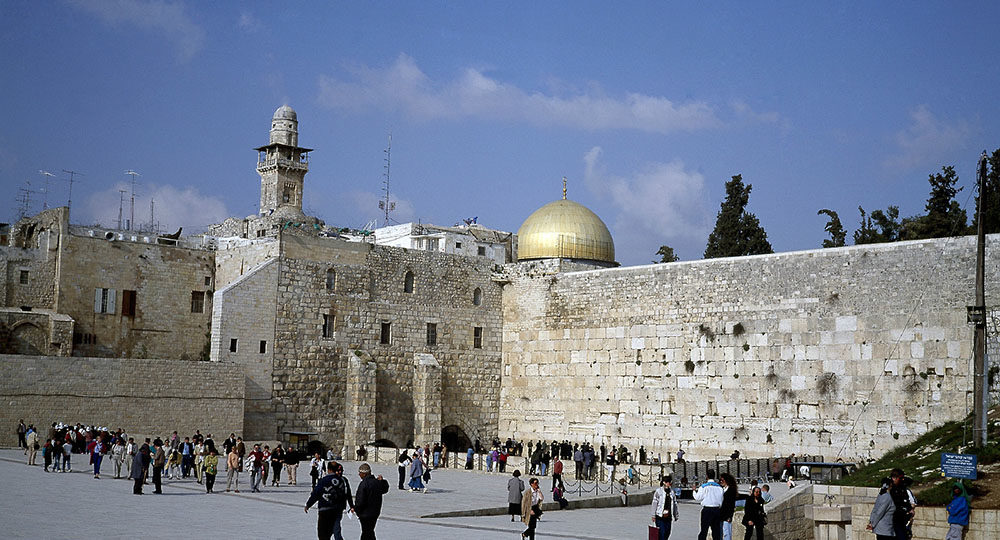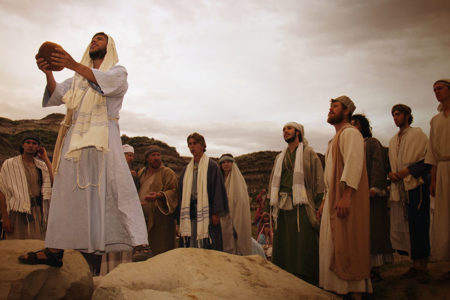The Messiah of Daniel 9
It’s a ritual of mine always to purchase a program when I go to a baseball game. A program is vital to the serious sports enthusiast because it provides information that helps identify the players. Some would say certain passages of Scripture would be clearer with a program. One is the latter half of Daniel 9, best known as the 70 Weeks Prophecy:
Seventy weeks are determined for your people and for your holy city….Know therefore and understand, that from the going forth of the command to restore and build Jerusalem until Messiah the Prince, there shall be seven weeks and sixty-two weeks;…And after the sixty-two weeks Messiah shall be cut off, but not for Himself; and the people of the prince who is to come shall destroy the city and the sanctuary (vv. 24–26).
God gave the prophet Daniel vital information regarding the identity of the Jewish Messiah, particularly when He would be here on Earth.
This prophecy clearly has nothing to do with the Gentile world. Its fulfillment is linked exclusively to Daniel’s people, who were and are Jewish. It is also tied to their “holy city,” which has been Jerusalem ever since King David made it his capital more than 3,000 years ago.
The words seventy weeks can be confusing. The word translated “week” literally means “seven.” So there would be seventy groups of seven.
The phrase the command to restore and build Jerusalem refers to events of Nehemiah 1—2 when Persian King Artaxerxes issued a decree giving Nehemiah the authority to rebuild Jerusalem’s walls in March 445 B.C.
Wrote Bible scholar Alva J. McClain:
The Jews had a “seven” of years as well as a “seven” of days. And this biblical “week” of years was just as familiar to the Jew as the “week” of days. It was, in certain respects, even more important….Upon a multiple of this important week of years—“seven Sabbaths of years”—there was based the great jubilee of social and economic adjustment every fiftieth year, when debts were wiped out, estates returned to the original holders, and slaves went free (Lev. 25:8–9). Nothing could be so important to the Jew as this week of years.1
So we are looking at 490 prophetic years. They are divided into three parts: (1) “seven weeks,” or 49 years (Dan. 9:25), followed by (2) “sixty-two weeks,” or 434 years (v. 26), followed by (3) “one week,” or seven years (v. 27).
The seven weeks plus 62 weeks (69 weeks) pinpoint when the long-awaited Messiah would be present: exactly 483 years from the decree to restore and build Jerusalem. Verse 26 says, “After the sixty-two weeks Messiah shall be cut off, but not for Himself.” Consequently, He would also be “cut off,” or die, during that time.
Isaiah, who died more than a century earlier, also spoke of the Messiah’s death: “For He was cut off from the land of the living; for the transgressions of My people He was stricken” (Isa. 53:8).
Only one person presented Himself as the Messiah during the correct time frame: Jesus. When He entered Jerusalem to people hailing Him as King (Lk. 19:37–38), He told the religious leaders who failed to acknowledge Him, “You did not know the time of your visitation” (v. 44). They should have known; they had Daniel’s prophecy.
Today many view the Messiah as a myth, an age, or a human deliverer whose arrival lies in the distance. But God’s Word reveals His program. The Messiah has come, and truly He will come again. Maranatha!
ENDNOTE
- Alva J. McClain, Daniel’s Prophecy of the 70 Weeks (1940; Winona Lake, IN: BMH Books, 2007), 19.






